Rev. 11/11/20
Is All Plastic Recyclable?
This is a question on many people’s lips. Many people think if there is a plastic recycle symbol on the plastic it’s recyclable. This is far from the truth.
There are many types of plastics produced. Not all plastics are created the same so not all plastics have the same chance of being recycled. Read on to know what plastics can be recycled so you can reduce your carbon footprint.
Like this? Share it with others!
This post contains affiliate links. My preference is to provide links to companies other than Amazon whenever possible. I recognize many people like Amazon, not to mention there are eco-friendly, ethical, and sustainable brands out there who use Amazon. I want to support them. So, just know you may see multiple links for one option. Should you make a purchase through these links, I will receive a small commission at NO additional cost to you. See my Disclaimers & Disclosures and Privacy Policy for more information.
Why is Plastic Recycling Important?
As of 2015, over 380 million tons of plastic waste was produced globally, up 20,000% since 1950! Plastic production has increased since, of which only 9% is reported to be recycled.
In essence, we are producing more than a ton of plastic waste per person on Earth annually. Even worse, it takes 4 to 8% of global oil consumption to produce these plastics.
Remember, there is no “away” in our concept of “throw away”. Our solid waste goes somewhere. It not only goes to landfills, but it also goes to non-landfill land areas, water ways, streams and, of course, the ocean.
Plastic trash literally chokes, suffocates, and kills marine life, impacting their ability to live safely; therefore, it also impacts the fishing industry and local economies that rely on that biodiversity (if the economy is your concern).
Plus, we humans consume the fish that consume plastic. Ick!
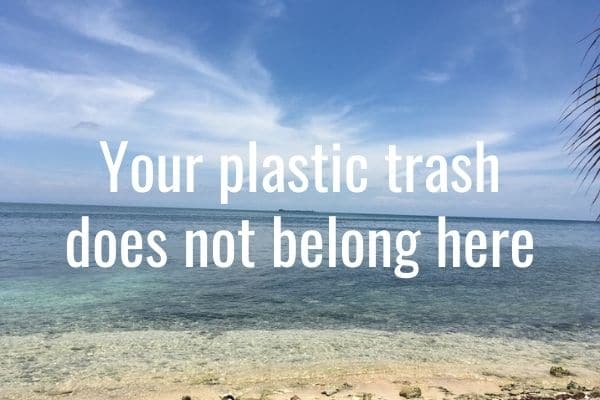
Additionally, the U.S. is running out of space and ways to dispose of plastic waste. We used to ship it to China, but now China is no longer accepting the U.S.’s plastic waste. The latest victim from the U.S. is Argentina, but how much longer will it be until they wise up and no longer take the U.S.’s plastic waste?
The ultimate goal is to reach zero waste and redesign manufacturing systems for a 100% circular economy. Until we get there, we are left to doing our best with the waste already produced when we buy it. Here is where recycling comes in.
Plastic Recycling Symbols 1 – 7
There are 7 types of plastics produced, each represented by that familiar number inside the recycle symbol. Look familiar?

The above symbols on plastics, developed by the Society of the Plastics Industry, Inc. in 1988, are called the resin identification code. The purpose of this voluntary code system is, you guessed it, to identify what type of plastic it is as well as help consumers know if it can be recycled in which jurisdiction.
Why is Plastic Not Recyclable?
Since different plastics have different polymers, this gives them different uses. Of course, this distinguishes what plastics can be recycled or not. The rule of thumb was that plastics with a “1” or “2” are generally recyclable; “3” and “5” plastics are sometimes recyclable; and all others are not recyclable, explained in the following image:
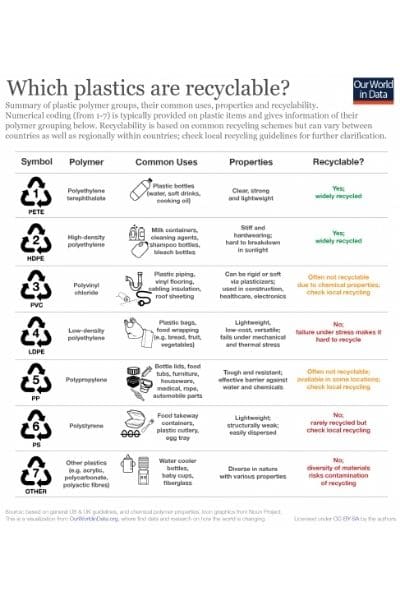
Well… in 2020, the big oil companies finally admitted that they have been lying to the public about plastics being recyclable all along. Since the 1970’s, in fact.
And why? All for money. “Making new plastic out of oil is cheaper and easier than making it out of plastic trash”, was their only view.
Yes, you the consumer, have been duped and manipulated. Our environment has been literally trashed. All the while, big oil has made hundreds of billions of dollars every year making plastics. Even worse, “Analysts now expect plastic production to triple by 2050.”
You’ll Also Like
So, What Plastics Can Be Recycled?
Greenpeace claims that, “Only some PET #1 and HDPE #2 plastic bottles and jugs can be legitimately labeled as recyclable in the U.S. today.” This may be true.
To get more information on what plastics can be recycled, check with your local city or county government. Your local recycling collection service will, or should, have an updated website (since the 2020 announcement) that details what plastics they can and cannot recycle.
A Note on Single-Use Plastics
Single-use plastics mean just that: those products made from plastic you use once and throw “away”. The NRDC has a great article describing these products, why they are bad, and what you can do to avoid using them.
Simply put, just stop using single-use plastics at all possible times. Bring your own water bottle and coffee mug where ever you go. Carry them in your reusable bags you keep with you and in your car. Stop using plastic utensils and straws by bringing your own, and ask your favorite restaurants to stop buying them.
There are many easy ways you can avoid using single-use plastics with simple, inexpensive lifestyle changes.
What Else Can Be Recycled or Collected?
In addition, your municipality should have a list of non-regular items they can collect, recycle and/or dispose of properly so as not to negatively impact our environment, which, of course, negatively impacts our health. Examples, but surely not an inclusive list, of items that should not be disposed regularly through your local waste collection service are:
- Drain cleaners
- Pool chemicals
- Batteries of any kind
- Anything containing mercury
- Paints, paint thinners, sealants, paint strippers, etc.
- Household cleaners not biodegradable
- Pesticides, insecticides or repellants
- Motor oil, gasoline, antifreeze
- Electronics
- Flammable products
What More Can You Do?
So, why even make plastics that can’t be recycled? This is a very good question! Do we really need those types of plastics?
This is where you, the consumer, come in to get your local and state representatives to put ballot measures to provide more recycling options and force manufacturers to have to take back the waste they created in the first place.
Can you imagine if manufacturers had that responsibility? How much plastic waste do you think they’d create? Not much! Act and make your voice heard towards zero waste and a circular economy.
Last, change your consumption habits. Switch to products that don’t come in plastic containers if possible. If a plastic container is the only option, examine the recyclability before purchasing. If there are no other options, write to the manufacturer demanding a different type of container.
The power is in your hands to make positive change.
Let Me Hear From You
I would love to hear if knowing what plastics can be recycled helped you. Post me your thoughts or questions in the Comments section below. Thank you!
Like this? Share it with others!
MORE ZERO WASTE POSTS YOU’LL LIKE
19 Ways to Reduce Food Waste and Save Money

Gwen, CORR Concepts Founder
Gwen is a Sustainability professional with an MBA in Sustainable Enterprises and LEED AP ID+C accreditation from the GBCI. She is also the Founder of CORR Travel. As a Sustainability professional and Earth Steward, environmental sustainability and biodiversity protection is her “religion”. Travel is her passion.

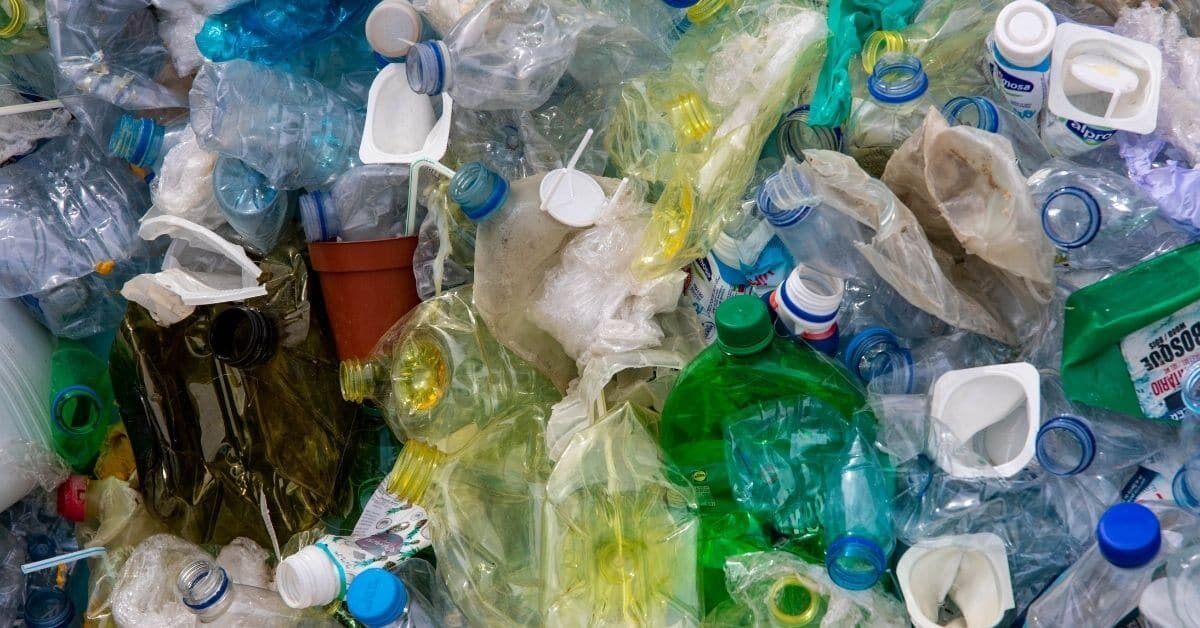
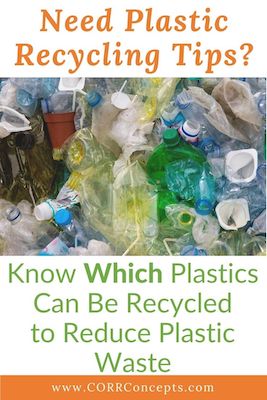
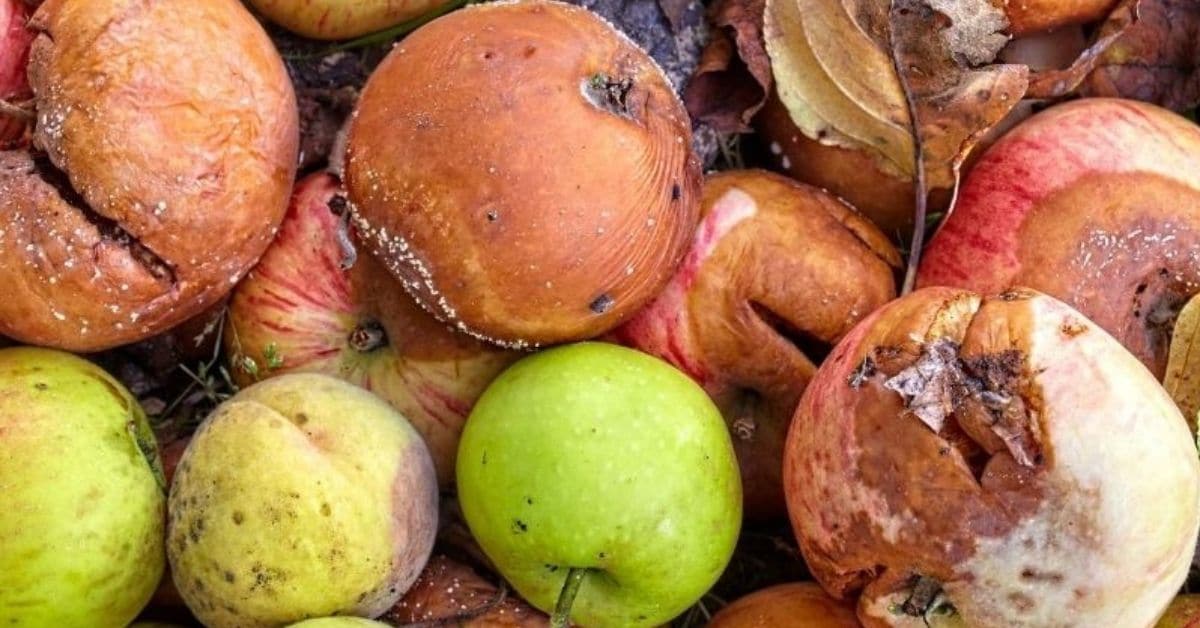
Pingback: купить настенный котел
Great, I’m glad it helped.